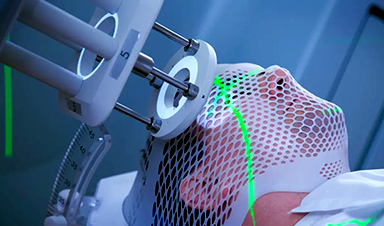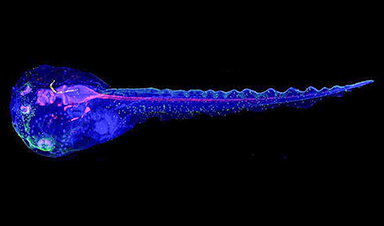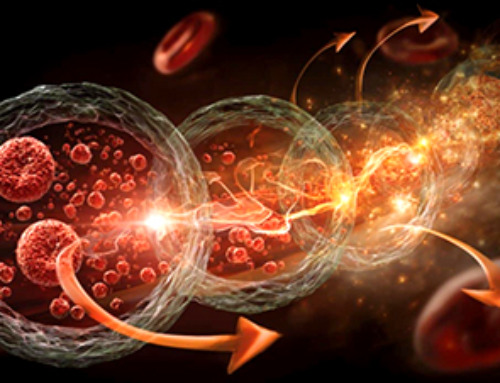An anti-cancer gel promises to wipe out glioblastoma permanently, a feat that’s never been accomplished by any drug or surgery. So what makes this gel so special?
Scientists at Johns Hopkins University (JHU) have developed a novel gel that both eliminates brain cancer (glioblastoma) and keeps it from recurring. When they tested this anti-cancer gel on mice with glioblastoma, surprisingly, all the mouse models were cured of the illness.
“We don’t usually see 100% survival in mouse models of this disease,” said Betty Tyler, one of the study authors and a neurosurgery professor at the Johns Hopkins School of Medicine.
A report from the National Tumor Society reveals that every year over 10,000 people die of glioblastoma in the US, making it one of the deadliest cancer types.
The JHU team claims that their gel is arguably the most effective glioblastoma treatment yet developed. Since it can stop tumor growth even in parts of the brain where traditional anti-cancer medications and surgeries don’t work.
What makes the gel so effective against brain cancer?
Currently, an FDA-approved brain implant called Gliadel is considered the most popular and potent glioblastoma treatment application. Professor Tyler who played an important role in the development of Gliadel in the 1990s suggests that during the mice trials, the new gel delivered results that are even more impressive than what is achieved with Gliadel.
This is probably because the gel-based treatment features characteristics of both chemotherapy and immunotherapy. It was developed by combining an anti-cancer drug called paclitaxel with an antibody named aCD47.
The former is a chemotherapy medication used in the treatment of ovarian, lung, and breast cancer, and the latter attacks macrophages (cells that promote tumor growth by protecting cancer cells).
During the study, the researchers first surgically removed brain tumors in mice and then filled the grooves that previously contained the tumors with the gel. They noticed that the gel didn’t allow any tumor growth further in mice brains.
Moreover, when the researchers tried to manually implant glioblastoma tumors in the mice, the immune system of the animals eliminated the implanted cancer cells without any medicine or therapies. The gel suppressed the existing cancer cells and enhanced the immune system in mouse models such that no new cancer cell was allowed to grow or multiply.
Surgery is a must for the success of the gel
Glioblastoma was completely eradicated in all the mice models whose brains received the gel treatment after the surgical removal of tumors. According to Tyler, “The gel is implanted at the time of tumor resection, which makes it work really well.”
Interestingly, the factor suggested by Tyler also acts as a limitation of this treatment as the gel has been found to not work well in the absence of surgery. For instance, when the researchers applied the gel directly to tumor sites in the brain of some mice (without removing the tumors), only 50 percent of those subjects survived.
The researchers are now planning to conduct clinical trials using their anti-cancer gel. If successful in humans, the gel will revolutionize brain cancer treatment forever. Hopefully, the gel will put an end to humanity’s search for the perfect glioblastoma treatment.
News
AI matches doctors in mapping lung tumors for radiation therapy
In radiation therapy, precision can save lives. Oncologists must carefully map the size and location of a tumor before delivering high-dose radiation to destroy cancer cells while sparing healthy tissue. But this process, called [...]
Scientists Finally “See” Key Protein That Controls Inflammation
Researchers used advanced microscopy to uncover important protein structures. For the first time, two important protein structures in the human body are being visualized, thanks in part to cutting-edge technology at the University of [...]
AI tool detects 9 types of dementia from a single brain scan
Mayo Clinic researchers have developed a new artificial intelligence (AI) tool that helps clinicians identify brain activity patterns linked to nine types of dementia, including Alzheimer's disease, using a single, widely available scan—a transformative [...]
Is plastic packaging putting more than just food on your plate?
New research reveals that common food packaging and utensils can shed microscopic plastics into our food, prompting urgent calls for stricter testing and updated regulations to protect public health. Beyond microplastics: The analysis intentionally [...]
Aging Spreads Through the Bloodstream
Summary: New research reveals that aging isn’t just a local cellular process—it can spread throughout the body via the bloodstream. A redox-sensitive protein called ReHMGB1, secreted by senescent cells, was found to trigger aging features [...]
AI and nanomedicine find rare biomarkers for prostrate cancer and atherosclerosis
Imagine a stadium packed with 75,000 fans, all wearing green and white jerseys—except one person in a solid green shirt. Finding that person would be tough. That's how hard it is for scientists to [...]
Are Pesticides Breeding the Next Pandemic? Experts Warn of Fungal Superbugs
Fungicides used in agriculture have been linked to an increase in resistance to antifungal drugs in both humans and animals. Fungal infections are on the rise, and two UC Davis infectious disease experts, Dr. George Thompson [...]
Scientists Crack the 500-Million-Year-Old Code That Controls Your Immune System
A collaborative team from Penn Medicine and Penn Engineering has uncovered the mathematical principles behind a 500-million-year-old protein network that determines whether foreign materials are recognized as friend or foe. How does your body [...]
Team discovers how tiny parts of cells stay organized, new insights for blocking cancer growth
A team of international researchers led by scientists at City of Hope provides the most thorough account yet of an elusive target for cancer treatment. Published in Science Advances, the study suggests a complex signaling [...]
Nanomaterials in Ophthalmology: A Review
Eye diseases are becoming more common. In 2020, over 250 million people had mild vision problems, and 295 million experienced moderate to severe ocular conditions. In response, researchers are turning to nanotechnology and nanomaterials—tools that are transforming [...]
Natural Plant Extract Removes up to 90% of Microplastics From Water
Researchers found that natural polymers derived from okra and fenugreek are highly effective at removing microplastics from water. The same sticky substances that make okra slimy and give fenugreek its gel-like texture could help [...]
Instant coffee may damage your eyes, genetic study finds
A new genetic study shows that just one extra cup of instant coffee a day could significantly increase your risk of developing dry AMD, shedding fresh light on how our daily beverage choices may [...]
Nanoneedle patch offers painless alternative to traditional cancer biopsies
A patch containing tens of millions of microscopic nanoneedles could soon replace traditional biopsies, scientists have found. The patch offers a painless and less invasive alternative for millions of patients worldwide who undergo biopsies [...]
Small antibodies provide broad protection against SARS coronaviruses
Scientists have discovered a unique class of small antibodies that are strongly protective against a wide range of SARS coronaviruses, including SARS-CoV-1 and numerous early and recent SARS-CoV-2 variants. The unique antibodies target an [...]
Controlling This One Molecule Could Halt Alzheimer’s in Its Tracks
New research identifies the immune molecule STING as a driver of brain damage in Alzheimer’s. A new approach to Alzheimer’s disease has led to an exciting discovery that could help stop the devastating cognitive decline [...]
Cyborg tadpoles are helping us learn how brain development starts
How does our brain, which is capable of generating complex thoughts, actions and even self-reflection, grow out of essentially nothing? An experiment in tadpoles, in which an electronic implant was incorporated into a precursor [...]





















